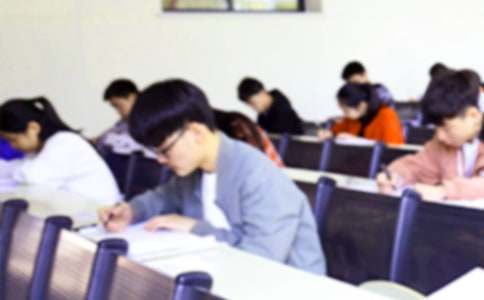英语四级考试试题及答案
阅读

Questions 57 to 61 are based on the following passage.
It is pretty much a one-way street. While it may be common for university researchers to try their luck in the commercial world, there is very little traffic in the opposite direction. Pay has always been the biggest deterrent, as people with families often feel they cannot afford the drop in salary when moving to a university job. For some industrial scientists, however, the attractions of academia (学术界) outweigh any financial considerations.
Helen Lee took a 70% cut in salary when she moved from a senior post in Abbott Laboratories to a medical department at the University of Cambridge. Her main reason for returning to academia mid-career was to take advantage of the greater freedom to choose research questions. Some areas of inquiry have few prospects of a commercial return, and Lee’s is one of them.
The impact of a salary cut is probably less severe for a scientist in the early stages of a career. Guy Grant, now a research associate at the Unilever Centre for Molecular Informatics at the University of Cambridge, spent two years working for a pharmaceutical (制药的) company before returning to university as a post-doctoral researcher. He took a 30% salary cut but felt it worthwhile for the greater intellectual opportunities.
Higher up the ladder, where a pay cut is usually more significant, the demand for scientists with a wealth of experience in industry is forcing universities to make the transition (转换) to academia more attractive, according to Lee. Industrial scientists tend to receive training that academics do not, such as how to build a multidisciplinary team, manage budgets and negotiate contracts. They are also well placed to bring something extra to the teaching side of an academic role that will help students get a job when they graduate, says Lee, perhaps experience in manufacturing practice or product development. “Only a small number of undergraduates will continue in an academic career. So someone leaving university who already has the skills needed to work in an industrial lab has far more potential in the job market than someone who has spent all their time on a narrow research project.”
57. By “a one-way street” (Line 1, Para. 1), the author means ________.
[A] university researchers know little about the commercial world
[B] there is little exchange between industry and academia
[C] few industrial scientists would quit to work in a university
[D] few university professors are willing to do industrial research
58. The word “deterrent” (Line 2, Para. 1) most probably refers to something that ________.
[A] keeps someone from taking action [C] attracts people’s attention
[B] helps to move the traffic [D] brings someone a financial burden
59. What was Helen Lee’s major consideration when she changed her job in the middle of her career?
[A] Flexible work hours. [C] Her preference for the lifestyle on campus.
[B] Her research interests. [D] Prospects of academic accomplishments.
60. Guy Grant chose to work as a researcher at Cambridge in order to ________.
[A] do financially more rewarding work
[B] raise his status in the academic world
[C] enrich his experience in medical research
[D] exploit better intellectual opportunities
61. What contribution can industrial scientists make when they come to teach in a university?
[A] Increase its graduates’ competitiveness in the job market.
[B] Develop its students’ potential in research.
[C] Help it to obtain financial support from industry.
[D] Gear its research towards practical applications.
参考答案:
57. C) few industrial scientists would quit to work in a university
推理题。“one-way street” 字面意思是“单行道”,含有只能从一个方向前进却很难往相反方向前进的.意思,用了比喻用法。文章第二句就解释说明了这个“one-way street”在文中的含义。大学里的学者去商界创业的现象不算稀奇,但是反过来就不怎么常见。所以选择C选项。
58. A) keeps someone from taking action
推理题。“deterrent”有妨碍物的意思。在文中需要通过上下文来理解。单词前的意思是“薪水永远是最大的…因为很多人觉得到大学里工作就会减少工资,从而无法养家糊口。”从后面半句,我们可以推断出deterrent的意思,所以选A选项。
59. B) Her research interests.
细节题。答案在Para3Line3可以找到。“Her main reason for… to take advantage of the great freedom to choose research questions.”表明Helen Lee换行主要考虑到的是自己可以比较自由地选择研究领域,即个人的研究兴趣。所以选择B选项。
60. D) exploit better intellectual opportunities
细节题。本题比较简单,在Para3最后一句“felt it worthwhile for the great intellectual opportunities”就可以找到答案。
61. A) Increase its graduates’ competitiveness in job market.
推理题。本着一题对应一段的一般原则,我们应该在最后一段里找答案。“the demand for scientists with a wealth of experience in industry in…“that will help students get a job when they graduate”段落主要是在讲industrial scientists到大学教学后的主要贡献。所以选择A项。
【英语四级考试试题及答案】相关文章: